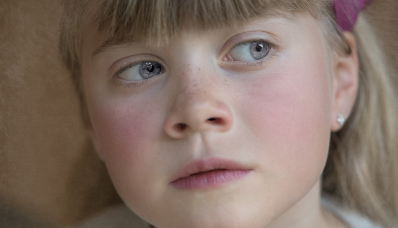
An allergy is the body’s immune system response to certain elements in the environment. Children with allergies have immune systems that react (and sometimes over-react) to specific substances in their environment that usually don’t cause reactions in other children.
About 20% of people — one in every five, both adults and children — have allergies, including allergic asthma. About 80% of children with asthma have allergies, and food allergies occur in about 8% of children younger than age six.
Children typically seem to be more susceptible and vulnerable to allergies than adults do. Allergies to food, dust mites, animal dander, and pollen are all very common. These allergies show up as allergic rhinitis (hay fever), asthma, and atopic dermatitis (eczema). Also, frequent ear infections can be related to allergy.
If both parents have allergies, their biological child has a 75% chance of developing allergies. If one parent is allergic (or if relatives on one side of the family have allergies), then the child has about a 50% chance of having allergies. There is evidence that breast feeding can help prevent children from developing food allergies and eczema.
Symptoms begin to show as the body releases special antibodies called IgE (immunoglobin E). These antibodies are the key players in an allergic reaction. IgE can trigger the release of chemicals (like histamine, an organic nitrogenous compound) that can, in turn, cause the physical symptoms and physical changes associated with allergies such as:
- Hives and rashes
- Runny nose and watery eyes
- Itching or swelling of the lips, tongue, or throat
- Upset stomach, cramps, bloating, or diarrhea
- Wheezing or difficulty breathing
- Anaphylactic shock — a life-threatening body reaction requiring emergency care
First, bear in mind that allergy tests are not the sole basis for diagnosing or treating an allergy. Pediatricians and allergists make an allergy diagnosis based on several factors:
- History of the child’s experiences and family history of allergy/asthma
- Physical exam of the child to detect signs and symptoms of allergy
- Allergy testing for sensitivity to specific allergens
Allergy tests can help your pediatrician confirm allergies your child may have. When an allergy test pinpoints a reaction to a specific allergen(s), your pediatrician can also use this information in developing “immunotherapy” — allergy shots — specifically for your child, if appropriate.
If you suspect your child might have an allergy, your best course of action is to contact us, your local Cape Coral pediatrician’s office, and schedule an appointment.
MacKoul Pediatrics is an amazing local pediatrics office in Cape Coral, FL where caring, compassionate doctors and nurses work with you to keep your children as healthy as possible. MacKoul cares for children from birth to college age, from Cape Coral, Fort Myers, Naples, and beyond.
January 9, 2015
 An allergy is the body’s immune system response to certain elements in the environment. Children with allergies have immune systems that react (and sometimes over-react) to specific substances in their environment that usually don’t cause reactions in other children.
An allergy is the body’s immune system response to certain elements in the environment. Children with allergies have immune systems that react (and sometimes over-react) to specific substances in their environment that usually don’t cause reactions in other children.